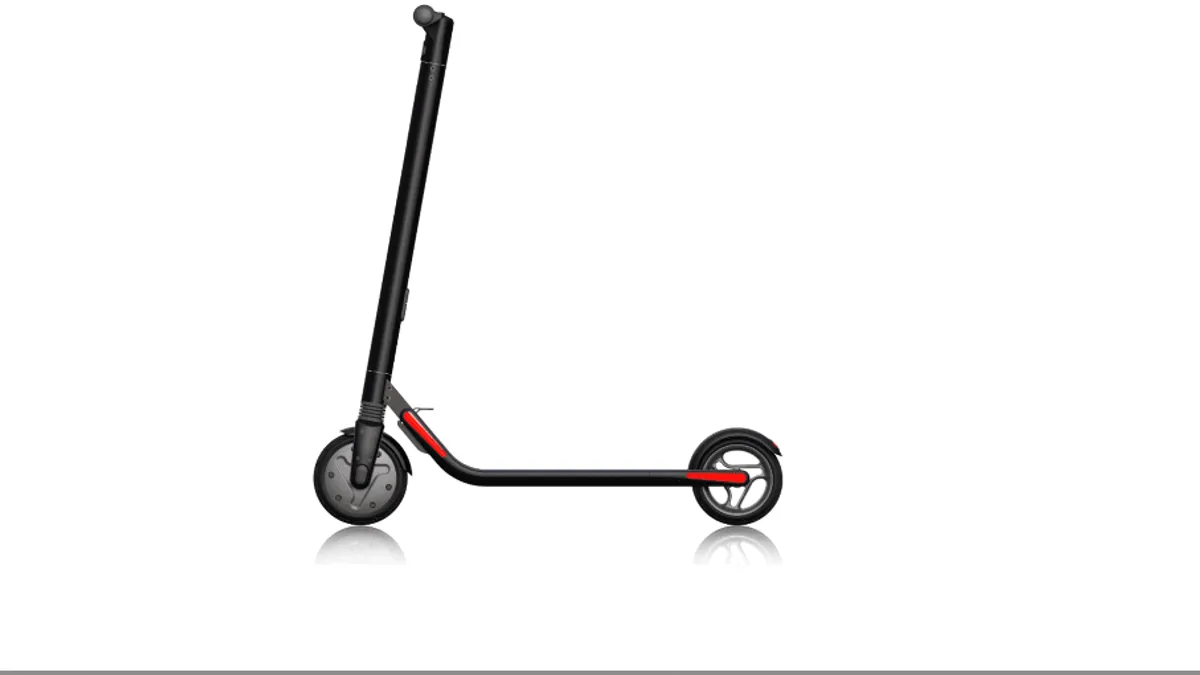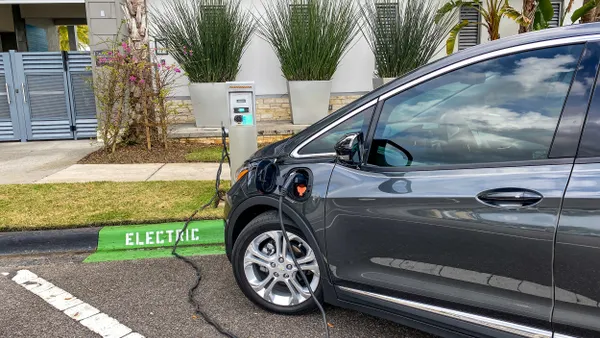Dive Brief:
- Santa Monica, CA-based electric scooter sharing company Bird announced it raised $15 million in funding from five venture capital firms. Bird users can download the service's app to locate a scooter and ride it directly to their destination. It is a "last-mile" option for those traveling from subway or bus stations to another destination.
- The service launched in September 2017 under Travis VanderZanden, the former vice president of growth at ride-hailing giant Uber and the first COO at rival Lyft. Bird is currently available in Santa Monica and Venice, CA, as well as some neighborhoods in San Diego and Los Angeles. “It’s convenient, it’s green, it alleviates traffic and makes cities more livable. This product has the potential to transform urban areas," said David Sacks, co-founder of investment firm Craft Ventures and a member of Bird’s board of directors, in a statement.
- The company has touted the scooters' popularity, saying they have been ridden more than 250,000 times, though Business Insider reported it has already courted controversy and a criminal complaint in Santa Monica for not obtaining the proper permits.
Dive Insight:
A company offering shared scooters for short journeys could be onto something, simply because it is a concept that has not gained much traction yet in the United States. While cities like Sacramento look at “microtransit” to help people complete the final mile of their journeys without walking or hailing a car, this represents another option in a growing market.
Beyond VanderZanden, the Bird company is littered with former Uber and Lyft employees, including vice president of operations Stephen Schnell, head of growth Ryan Fujiu and head of launch Ryan Hupfer (all previously with Lyft). In addition, vice president of corporate development Sean Sires is a former Uber employee. With that kind of expertise coming from two ride-hailing services that have disrupted the market, for better or for worse — depending on who you ask — Bird is set up for success.
The challenge facing cities looking to bring Bird in could be centered around the scooters being dockless, so they can be left and picked up anywhere. VanderZanden told Business Insider that this should not be an issue due to their constant use, before being sent to a recharging facility at the end of the day and then redistributed in the morning. Dockless bikes have already caused issues in cities like Dallas and San Francisco, but the scooters being sent to recharging stations could help prevent sidewalk clutter and other safety issues.
Bird’s founders are bullish about the company’s future, and with the requirement that riders have a driver’s license and always wear a helmet on scooters limited to 15 mph, seem hopeful that they have safety concerns taken care of, too. The Washington Post reported that the Santa Monica Police Department made 281 traffic stops and issued 97 citations between Jan. 1 and early February, so it will be imperative for local police departments and leaders to cooperate with the app’s founders to promote safe use on city streets.












